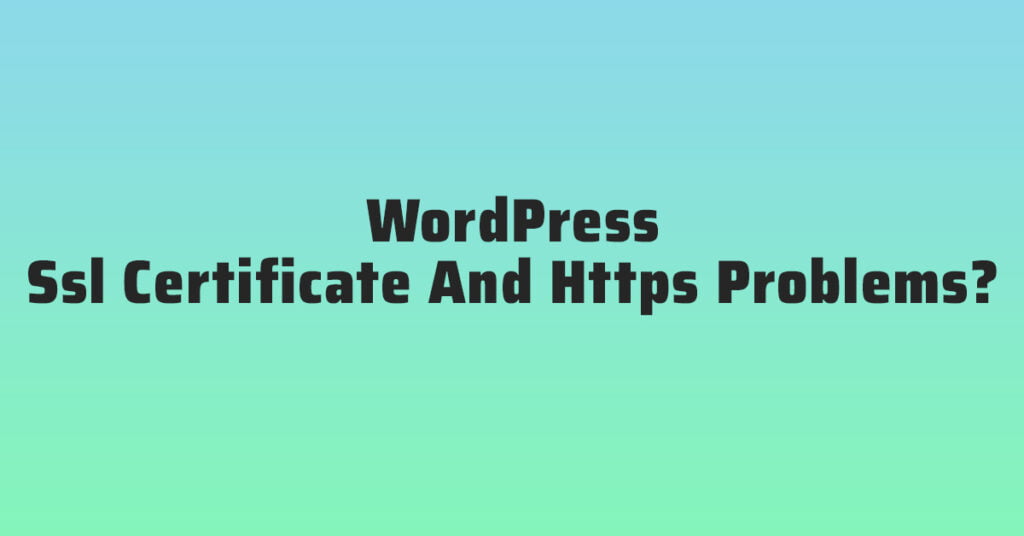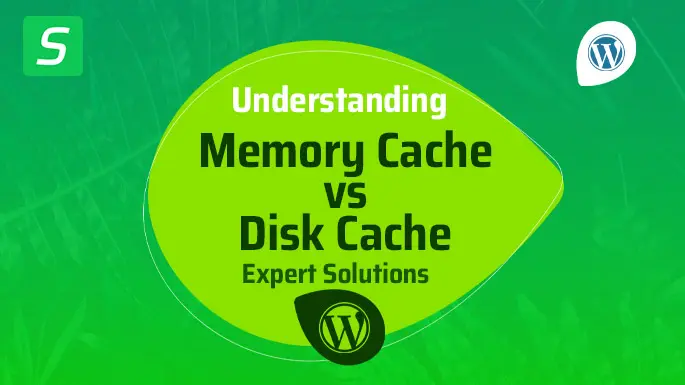SSL certificate and HTTPS problems? We’ve got you covered.
We will discuss the importance of SSL certificates and HTTPS for website security and search engine optimization.

Understanding Ssl Certificates
Understanding SSL certificates is essential for anyone who runs a website or online business. SSL stands for Secure Sockets Layer, and it is a security technology that establishes an encrypted link between a web server and a browser. This link ensures that all data transferred between the server and the browser remains private and secure.
What Is An Ssl Certificate?
An SSL certificate is a digital certificate that verifies the authenticity of a website and enables secure connection. It serves as a proof that the website is safe to browse, and that any information exchanged between the user and the website is encrypted and protected.
Why Is An Ssl Certificate Important?
An SSL certificate is important for several reasons:
- Security: By encrypting the data transmitted between a user’s browser and the web server, an SSL certificate ensures that sensitive information such as passwords, credit card details, and personal information cannot be intercepted by hackers.
- Trust: When visitors see that a website has an SSL certificate, it instills trust and confidence in them. They know that their information is secure, and they are more likely to proceed with transactions or sharing personal data.
- SEO: In recent years, search engines have started prioritizing websites with SSL certificates in search rankings. Having an SSL certificate can give your website a boost in visibility and attract more organic traffic.
In summary, SSL certificates are crucial for website security, user trust, and search engine optimization. By encrypting data and validating the authenticity of a website, SSL certificates provide a safe browsing experience for users and help website owners establish credibility. Whether you run an e-commerce store, handle sensitive customer information, or simply want to protect your website visitors, getting an SSL certificate is a smart decision.
Common Https Problems
When it comes to securing your website and providing a safe browsing experience for your visitors, HTTPS and an SSL certificate are crucial. However, just like with any technology, problems can arise. In this article, we will explore three common issues that you may encounter with HTTPS: mixed content warnings, SSL certificate errors, and redirect loop issues. Fortunately, we’ve got you covered, as we will discuss each problem and provide solutions to help you resolve them effectively.
Mixed Content Warnings
If you’ve recently implemented HTTPS on your website and start seeing warnings about mixed content, don’t panic. These warnings typically occur when you have a combination of secure (HTTPS) and insecure (HTTP) content on the same page. Browsers alert users to these mixed content issues to ensure the integrity of the secure connection.
The most common culprits causing mixed content warnings are images, JavaScript, and CSS files that are still being loaded over HTTP instead of HTTPS. To solve this issue, you’ll need to update the URLs of these resources to use HTTPS. A simple Find and Replace in your website’s codebase or CMS should do the trick.
In addition, it’s essential to check if any third-party plugins, widgets, or external resources are causing the problem. Ensure that they support HTTPS, as they may be loading content from an insecure source. Updating or replacing these components can help eliminate mixed content warnings and ensure a fully secured browsing experience for your visitors.

Ssl Certificate Errors
An SSL certificate error can be frustrating, as it indicates that there’s an issue with the certificate itself. These errors can range from a mismatch in the domain name to an expired or self-signed certificate. When visitors encounter a certificate error, they may be hesitant to proceed, leading to a loss of trust and potential business.
To fix SSL certificate errors, start by double-checking the certificate and its installation. Ensure that the certificate matches your domain name, has not expired, and is issued by a trusted Certificate Authority (CA). If there are any issues, contact your web hosting provider or SSL certificate issuer for assistance.
If you’re using a self-signed certificate, consider switching to a trusted certificate from a reputable CA like Let’s Encrypt or Digicert. Self-signed certificates may trigger warnings for visitors since they aren’t issued by trusted authorities. Upgrading to a trusted certificate helps establish trust and eliminates SSL certificate errors.

Redirect Loop Issues
Redirect loop issues occur when there is a configuration problem with your website’s redirects. Instead of successfully redirecting visitors to the HTTPS version of your site, they end up being stuck in an infinite loop, causing frustration and potential abandonment of your website.
To resolve redirect loop issues, double-check your website’s .htaccess file (if you’re using Apache) or server configuration (if using Nginx). Ensure that the redirect rules are correctly configured and don’t result in an endless loop. Be mindful of any conflicting rules that may be causing the issue.
Additionally, check for any hardcoded redirects or plugins that may conflict with your redirect settings. Disable conflicting plugins temporarily to see if the issue resolves. This step-by-step troubleshooting process should help you identify and fix redirect loop issues, ensuring a smooth transition to HTTPS.

Solutions And Troubleshooting
When it comes to SSL certificates and HTTPS problems, finding effective solutions and troubleshooting techniques is crucial. In this post, we’ve got you covered with practical fixes to common issues. Let’s explore the solutions below:
Updating Insecure Content
One of the main reasons why your website might not be showing the green padlock symbol is due to insecure content. To fix this, you need to ensure that all elements on your website are served through HTTPS. Here’s what you can do:
- Inspect your website’s pages and identify any mixed content warnings in your browser’s console.
- Replace all HTTP URLs with their HTTPS equivalents. This includes images, CSS, and JavaScript files.
- If you have a large website, consider using automated tools to scan for insecure content and update the URLs.
Reinstalling Or Renewing Ssl Certificate
If you’re facing issues with your SSL certificate, reinstalling or renewing it can often resolve the problem. Follow these steps to reinstall or renew your SSL certificate:
- Access your hosting provider’s control panel or cPanel.
- Locate the SSL/TLS section and find the option to manage certificates.
- Choose the domain you want to reinstall or renew the SSL certificate for.
- Follow the prompts to generate a new certificate or renew the existing one.
- After the process is completed, configure your web server to use the newly installed or renewed SSL certificate.
Fixing Redirect Loop Issues
Redirect loop issues can occur when there is a misconfiguration in your website’s redirects. It can create a frustrating user experience and negatively impact your SEO. Here’s how you can fix redirect loop issues:
- Check your website’s redirection settings and ensure there are no conflicting rules.
- Inspect the HTTP response headers to identify any abnormal redirects or loops.
- Update your .htaccess file or server configurations to ensure proper redirect rules are in place.
- Clear your browser cache and cookies to remove any cached redirect loops.
By following these troubleshooting techniques, you can successfully resolve common SSL certificate and HTTPS problems. Remember to regularly monitor your website’s security and address any potential issues promptly. Implementing these solutions will help you secure your website and provide a smooth browsing experience for your visitors.
Frequently Asked Questions For Ssl Certificate And Https Problems? We’ve Got You Covered
What Is An Ssl Certificate And Why Should I Use It?
An SSL certificate is a digital certificate that encrypts the data transmitted between a website and its visitors, ensuring that it remains secure. Using an SSL certificate is important because it protects sensitive information, builds trust with users, and improves your website’s search engine rankings.
How Do I Know If A Website Has An SSL Certificate?
You can easily check if a website has an SSL by looking at the URL. Websites with SS-L certificates will start with “https://” instead of “http://”. You may also see a padlock symbol in the address bar, indicating that the website is secure.

What Are The Common Https Problems And How Can I Fix Them?
Common HTTPS problems include mixed content warnings, certificate errors, and outdated SSL versions. To fix these issues, ensure that all resources on your website are loaded using HTTPS, check your certificate’s validity and install a new one if necessary, and make sure you are using the latest SSL/TLS protocols.
Can I Use A Free Ssl Certificate For My Website?
Yes, there are free SSL-certificate options available, such as Let’s Encrypt. These certificates provide basic encryption and can be a good option for small websites or personal blogs. However, for larger websites and businesses handling sensitive data, it is recommended to invest in a more advanced SSL certificate.
Conclusion
Securing your website with SSL-certificate and transitioning to HTTPS can be challenging, but with our expert guidance and solutions, all your problems will be resolved. Enhancing the security of your website not only protects sensitive information but also boosts your credibility and improves user experience.
Don’t let SSL certificate and HTTPS issues hinder your website’s success; trust our team to provide comprehensive assistance. Connect with us today and ensure a safe and secure online presence.





